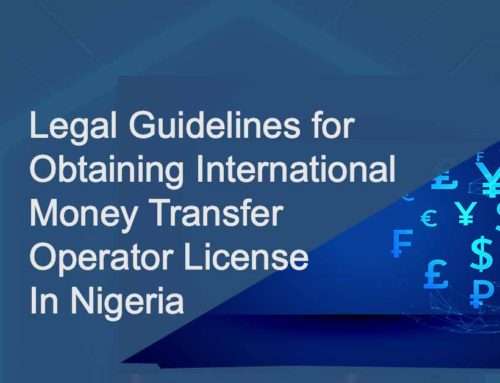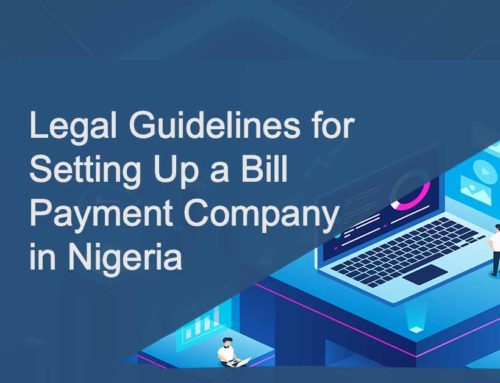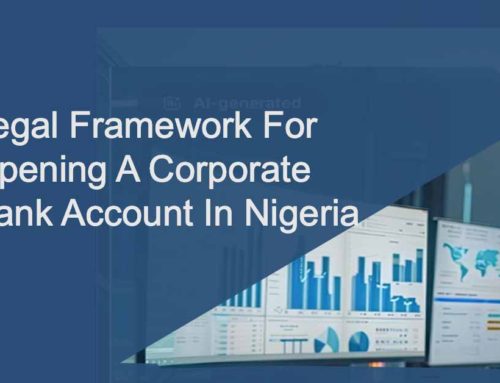Microfinance Banks are financial institutions regulated in Nigeria by the Central Bank of Nigeria.
Anyone looking to set up a microfinance bank is required to register the business in line with the regulations set in place by the CBN. Not following the regulations may result in the refusal to grant a license to operate or the revocation of an already granted license.
In this article we would define what a microfinance bank is, the permissible and non permissible activities of microfinance banks, the procedure, requirements and cost of setting up a microfinance bank in Nigeria. Feel free to schedule a consultation call with us or reach out directly if you need help with setting up a microfinance bank in Nigeria.
What is a Microfinance Bank?
A Microfinance Bank (MFB) is any company licensed by the Central Bank of Nigeria (CBN) to carry on the business of providing financial services such as savings and deposits, loans, domestic funds transfer and non-financial services to microfinance clients.
Microfinance Banks are regulated by the Central Bank of Nigeria by virtue of the Bank and Other Financial Institutions Act, 2020 as well as the Central Bank of Nigeria Act, 2007.
Categories of Microfinance Banks In Nigeria
If you are looking to register a microfinance bank in Nigeria, there are four categories available under the regulations. The categories are:
Tier 1 Unit Microfinance Bank
A Tier 1 unit microfinance bank is licensed to operate in urban and densely banked areas. Tier 1 unit MFBs are allowed to have not more than 5 branches within 5 contiguous Local Government areas in a state subject to the authorization of the CBN.
The minimum share capital of a Tier 1 unit microfinance bank is ₦200,000,000 (Two Hundred Million Naira).
Tier 2 Unit Microfinance Bank
A Tier 2 unit microfinance bank is only authorized to operate in the rural, unbanked or underbanked areas. They are permitted to open one branch office outside the head office within the same Local Government Area.
The minimum share capital of a Tier 2 unit microfinance bank is 50,000,000 (fIfty million naira).
State Microfinance Banks
State Micro-Finance Banks are licensed to operate within a particular state and are allowed to have multiple branches and cash centers within the state subject to prior approval from the CBN.
A MFB with a state-wide license must have a minimum share capital of ₦1,000,000,000 (One Billion Naira).
National Microfinance Bank
National Microfinance Banks have a nationwide spread and can operate in multiple states including the federal capital territory.
They are also allowed to have multiple branches and cash centers within any state subject to prior approval from the CBN.
National MFBs are required to have an authorized share capital of not less than ₦5,000,000,000 (Five Billion Naira).
Who Can Establish A Microfinance Bank In Nigeria?
Microfinance banks can be established by:
- Individuals
- Group of individuals
- Community development associations
- Private corporate entities
- Foreign investors
- The State or Local Government
Permissible and Non Permissible Activities of MFBs
Under the CBN regulations, there is a list of activities that a microfinance bank can engage in reffered to as the permissible activities. There is also a seperate list of activities that a microfinance bank cannot engage in which is referred to as the non permissible activities.
Activities Microfinance Banks In Nigeria Can Engage In
An MFB can engage in all or any of the following activities:
- Acceptance of various types of deposits including savings, time, target and demand deposits from individuals, groups and associations;
- Provision of credit to its customers;
- Provision of housing micro loans;
- Provision of ancillary services such as capacity building on record keeping and small business management and safe custody ;
- Issuance of debentures to interested parties to raise funds from members of the public with the prior approval of the CBN;
- Collection of money or proceeds of banking instruments on behalf of its customers including clearing of cheques through correspondent banks;
- Act as agent for the provision of mobile banking, micro insurance and any other services as may be determined by the CBN from time to time, within the geographic coverage of its licence;
- Appoint agents to provide financial services on its behalf in line with the CBN Agent Banking Guidelines, within the geographic coverage of its licence;
- Provision of payment services such as salary, gratuity, pension for employees of the various tiers of government;
- Provision of loan disbursement services for the delivery of the credit programme of government, agencies, groups and individual for poverty alleviation on non-recourse basis;
- Provision of banking services to its customers such as domestic remittance of funds;
- Maintenance and operation of various types of account with other banks in Nigeria;
- Investment of its surplus funds in suitable money market instruments approved by the CBN;
- Operation of micro leasing facilities, microfinance related hire purchase and arrangement of consortium lending;
- Participate in CBN Intervention Fund and funds other sources;
- Provision of microfinance related guarantees for its customers;
- Financing agricultural inputs, livestock, machinery and industrial raw materials to low- income persons;
- Investment in cottage industries and income generating projects for low-income persons as may be prescribed by the CBN from time to time;
- Provision of professional advice to low-income persons regarding investments in small businesses;
- Issuance of domestic commercial paper subject to the approval of the CBN;
- Provide financial and technical assistance and training to microenterprises; and
- Any other permissible activity as may be approved by the CBN from time to time
Activities Microfinance Banks In Nigeria Cannot Engage In
The CBN has outlined non-permissible activities for micro-finance banks. This means that MFBs are prohibited from engaging in such activities. They include the following services:
- Foreign currency transactions, except foreign currency borrowings;
- International commercial papers;
- International corporate finance;
- International electronic funds transfer;
- Clearing house activities;
- Collection of third party cheques and other instruments for the purpose of clearing through correspondent banks;
- Dealing in land for speculative purposes;
- Dealing in real estate except for its use as office accommodation;
- Provision of any facility for speculative purposes;
- Leasing, renting, and sale/purchase of assets of any kind with related parties and/or significant shareholders (five per cent or more of the equity) of the MFB, without the prior written approval of the CBN;
- Financing of any illegal activities; and
- any activity other than those permitted as stated above or as may be prescribed by the Central Bank of Nigeria from time to time.
Cost of Setting Up A Microfinance Bank in Nigeria
The cost of setting up a microfinance bank in Nigeria depends on the category of the Microfinance Bank. Each category has its specific minimum required share capital, the cost of application and the cost of obtaining the license.
Tier 1 MFBs:
the minium share capital is N200,000,000 ;the license fee is N250,000 and application fee is N100,000.
Tier 2 MFBs:
Minimum share capital is N50,000,000; license fee N250,000 and application fee is N100,000
State MFBs:
the minium share capital is N1,000,000,000 ;the license fee is N500,000 and application fee is N200,000
National MFBs:
the minium share capital is N5,000,000,000 ;the license fee is N1,000,000 and application fee is N300,000
Licensing Requirements For Microfinance Banks in Nigeria
In order to set up a microfinance bank in Nigeria, the promoters must apply to the Central Bank of Nigeria for a license.
The requirements for obataing the licenes depend on the category of Micro-finance bank license you wish to apply for.
The first thing to note however is that the application for a microfinance bank license is in three (3) stages.
-
Pre-licensing stage:
The promoters & investors of a proposed Microfinance Bank are to make a Pre-licensing presentation on the business case of the proposed Microfinance Bank to the Central Bank of Nigeria before a formal application for a license.
This provision is also applicable to investors seeking to acquire an existing Microfinance Bank.
-
The Approval in Principle stage (AIP):
At this stage, the promoters of Micro-finance banks would submit a formal application to the Governor of the Central Bank of Nigeria. The application would specify the exact category of Microfinance Bank the promoters are looking to establish.
After reviewing the application, the CBN may grant a conditional approval known as the Approval-in-Principle (AIP). The AIP does not grant permission to commence operations so the promoters must apply for the grant of a final license.
The Approval in principle stage usually takes an estimated period of 3 months before it is granted or rejected.
In order to apply for a conditional approval, you must have the following in place:
- Evidence of the payment of the prescribed non-refundable application fee to the CBN.
- Evidence of Capital Contribution by each of the shareholders.
- Evidence of a minimum capital deposit in line with the CBN Guidelines to be verified by the CBN.
- Evidence of company name reservation with the Corporate Affairs Commission (CAC).
- A detailed Business plan/Feasibility report
- For regulated foreign Institutional investors, an approval or a ‘no objection’ letter from the regulatory authority in the foreign investor’s country of domicile.
- A copy of the proposed MFB’s Shareholder’s Agreement.
- A statement of intent to invest in the bank by each investor.
- A technical services agreement where applicable (Digital Banking).
- The Bank Verification Number (BVN) and Tax clearance certificate of each member of the board of directors and shareholders of the proposed bank.
- Duly signed resume & valid means of identification for the proposed bank’s shareholders and directors.
- The criteria for selecting the proposed bank’s board members.
- Detailed manuals & policies covering the proposed bank’s Credit policy manual, Whistle-blowing policy, Enterprise Risk Management Framework, Code of Ethics/Business Conduct, Asset/liability management policy, Anti-Money Laundering Combating the Financing of Terrorism (AML/CFT) policy.
The processing of an AIP application from the date of completing the application takes at least 90 days. The grant of an AIP will entitle the promoters to register the bank with the Corporate Affairs Commission upon the presentation of the AIP from the CBN.
For Institutional/Corporate Investors, promoters shall forward the following documents:
- It’s Certificate of Incorporation and other relevant Incorporation documents.
- A copy of its Board Resolution supporting the company’s decision to invest in the equity shares of the proposed bank.
- Names & addresses of owners, directors & their related companies if any.
- Audited Financial statements and reports of the company along with a Tax clearance certificate for the immediate past 3 years.
-
Final Licensing Stage
The promoters of a Microfinance Bank must within 6 months after obtaining an Approval-In-Principle, apply for a grant of final license in writing to the Governor of the Central Bank of Nigeria.This application usually takes an estimated timeline of about 3-6 months before it is granted. The following documents should be attached to the application:
- Evidence of payment of non-refundable licensing fee to the Central Bank of Nigeria.
- Certified true copy of Certificate of Incorporation of the Microfinance Bank;
- Certified true copy of Memorandum and Articles of Association of the company.
- Certified true copy of the status report of the company.
- Evidence of location of Head Office (rented or owned) for the take-off of the business.
- Schedule of changes, if any, in the Board, Management and Shareholding after the grant of AIP.
- Evidence of ability to meet technical requirements and modern infrastructural facilities such as office equipment, computers, telecommunications, to perform the bank’s operations and meet CBN and other regulatory requirements.
- Copies of letters of offer and acceptance of employment in respect of the management team.
- List of proposed top management staff and duly signed resume stating their qualification (including photocopies of academic and professional credentials), experience, records of accomplishments and valid means of identification.
- Comprehensive plan on the commencement of the bank’s operations with milestones and timelines for roll-out of key payment channels; and
- Board and staff training programme.
Requirements For Commencing Business After the Grant of the Microfinance Bank License
After the grant of final license, there are some post-licensing requirements which a microfinance bank must comply with. The bank would be required to consult its legal department on the operational compliance requirements. Some of them include;
- Ensuring compliance with Corporate Governance requirements for Microfinance Banks.
- Ensuring compliance with deposit insurance scheme
- Ensuring compliance with Anti-Money Laundering and Combating of Financing Terrorism global practices.
- Compliance with staff fidelity insurance
- Registration with the National Association of Microfinance Bank (NAMB)
- Subscription for Group Life Insurance for its employees
CONCLUSION
Setting up a Microfinance Bank in Nigeria requires careful compliance with the CBN’s guidelines as illustrated in this article.
Compliance with the different aspects of the laws in relation to the shareholders, directors and top management staff is also very crucial. Hence, any group of promoters looking to set up an MFB in Nigeria may likely be required to engage a consultant vast in banking and finance law.
Hopefully we’ve been able to provide all required information in this article. However, if you have any further questions or would like to discuss other related matters, kindly reach out to us and our attorneys would be happy to assist.




